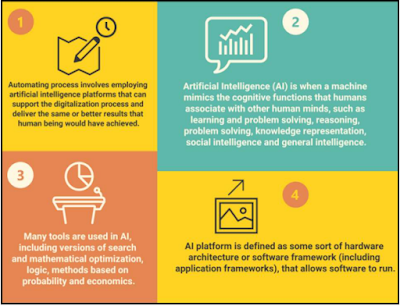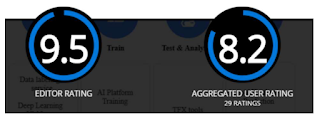From SIRI to self-driving cars, artificial intelligence (AI) is progressing rapidly. While science fiction often portrays AI as robots with human-like characteristics, AI can encompass anything from Google’s search algorithms to IBM’s Watson to autonomous weapons. Simply put in, AI is when a machine mimics the cognitive functions of the human mind.
But choosing the right automation tool is really important for your business’s efficient production and to cut down the cost of operation. The automation process involves employing artificial intelligence platforms that can support the digitization process and deliver the same or better results than humans would have achieved.
${tocify}
WHAT ARE ARTIFICIAL INTELLIGENCE PLATFORMS?
Artificial Intelligence Platforms involves the use of machines to perform the tasks that are performed by human beings. The platforms simulate the cognitive function that human minds perform and involve the use of expert systems like speech recognition and machine learning.
TOP 3 ARTIFICIAL INTELLIGENCE PLATFORMS
1. GOOGLE AI PLATFORM
Google AI Platform will help you to train your machine learning models at scale, host your trained model in the cloud, and to use your model to make predictions about new data. It supports Kubeflow, Google’s open-source platform which will let you build your own portable ML pipelines that can be run on-premises or on Google Cloud without making any prominent changes to your code.
FEATURES:
- Cloud-based Machine Learning
- Customer Sentiment Analysis
- Spam Detection
- Recommendation Systems
- Purchase Prediction
BENEFITS:
- State-of-the-art security system
- Convenient pricing scheme
- Can be used for long term projects
2. TENSOR FLOW
FEATURES:
- Deep Flexibility
- True Portability
- Connect Research and Production
- Auto-Differentiation
- Language Options
- Maximize Performance
BENEFITS:
- Fast
- You are able to share the benefits of ML
- Cloud TPUs are build to train and run ML easily and efficiently
3. MICROSOFT AZURE
FEATURES:
- Digital Marketing
- E-Commerce
- DevOps
- Big Data and Analysis
- Cloud Migration
- Internet of Things
- BlockChain
- Microservice Applications
BENEFITS:
- Mobile-enabled and Cloud-Based
- Supports various Operating system, language, tool,
- and framework
- Can be used for Gaming and Mainframe Migrations
- Used for High-Performance Computing





